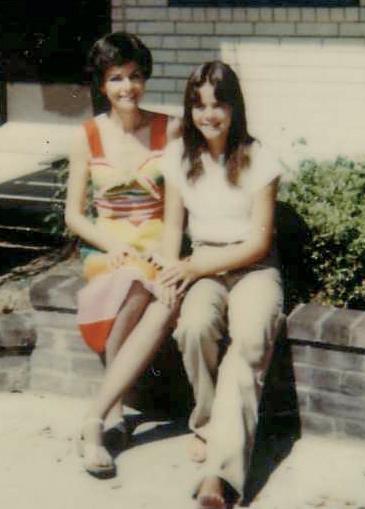 After 25 years of marriage, Dave and I have learned quite a bit about each other---one of the biggest early realizations was that he is a fixer. If I told him about my day at work, he wanted to fix it for me. On the other hand, I am the curious one (no, it does not mean I am nosy, Dave (just in case he is listening to me type this)). If he told me about an issue at work, I wanted to know more ("What do you think was going on with that person?"). I wanted to talk more and he wanted to talk less, in many instances. I was thinking about this difference between us the other day. Okay, honestly, I think about it at least once a month. Dave actually has a secret list hidden somewhere in this house, I just know it, that is his list of questions for God. Top on the list is: Why did You make men and women so different? I have my own questions, too, but those are for another blog, but in the meantime, I happen to think there is a really good reason we are so different. Imagine a world in which we marry or mate for life with someone who is exactly like us. Did you just say "Eeeeeek!!"? I did, because as scintillating as I think I am, I don't think I could stand two of me. Heck, some of you don't even need one of me. As I always say, I know I am not everyone's cup of tea, but it isn't for lack of trying. The reason this issue came up was not because of Dave's and my marriage but because I was thinking about teachers and school leaders, and how the conversations need to be two-sided (an actual conversation, if you will) in order to be useful. If all I, as a teacher, have to do is listen to you tell me about my teaching, then we really aren't having a conversation at all. Worse yet, if all you are doing is telling me what you saw when you visited my classroom, then I don't have to do any cognitive work...and I am likely going to resent you for telling me instead of talking with me about it. My mother passed away in July of 2005 (just after Hurricane Dennis hit Florida). The weeks and months leading up to her death were not fun. I joked a bit in my memoir about her and my intertwined lives --- Finding Mother's Voice (click the title to check out more about the book) ---- how after the power had finally come back on in Mother's little rental house (a few miles away from ours), her "mental power" never fully returned and she passed away peacefully about a week later. My mother was a witty, quirky, classy lady who made me laugh just by silly little things she said. But the last months of her life were fraught with kookier-than-normal things she was doing (spilling Ensure on the carpet when she would fall asleep in mid-meal -- which Peaches, her long-haired Chihuahua loved, for instance). One of the "kookiest" was her idea to put her wig in the oven to dry it after she had taken it off to wash it (that didn't turn out so well for the wig or the smell in her house, just in case you were thinking you might try that little trick). Why tell you this story, other than for you to possibly see how fun my mom was? The thing is, I could go home and complain to Dave about Mother's increasingly frequent crazy antics, but if he tried to say, "Your mom is really a loon", I would come to her defense in a heartbeat. You might wonder how I could defend her using her "First Alert" system (you know the alert devices to be used only in emergencies) when her television remote control wouldn't work (yes, sadly, I didn't just make that up), but the deal was: it was my complaint to make, it was my story to tell. Anyone else making fun of her? I would fiercely defend her (despite her wacky antics). Back to the teacher and the school leader. When an observer goes into a classroom to watch a teacher teach and collects good, solid evidence on the teacher's practice (which, by the way, takes a good bit of training and a good deal of practice to eliminate biases, opinions, and interpretations---check out the Danielson Group website to request some training in your district on this very topic, along with many others we do), the teacher should be allowed to look at the evidence himself/herself first. Once that takes place, then the teacher and school leader can hold a conversation and talk about the questions the teacher or observer might have about the lesson. In other words, I shouldn't tell the teacher "That lesson was wacked!" but the teacher may, at times, that some pieces and parts of the lesson could have been stronger. Only if we allow the teacher to do their own thinking and ask some thought-provoking questions is the process a "fair" one. There is so much more to this topic, I believe I will save some for the next time we meet. In the meantime, if you read my book about my mother and think she was a loon, keep it to yourself. :) Happy Communicating!!! Shelly
0 Comments
Leave a Reply. |
Shelly ArnesonCategories |


 RSS Feed
RSS Feed